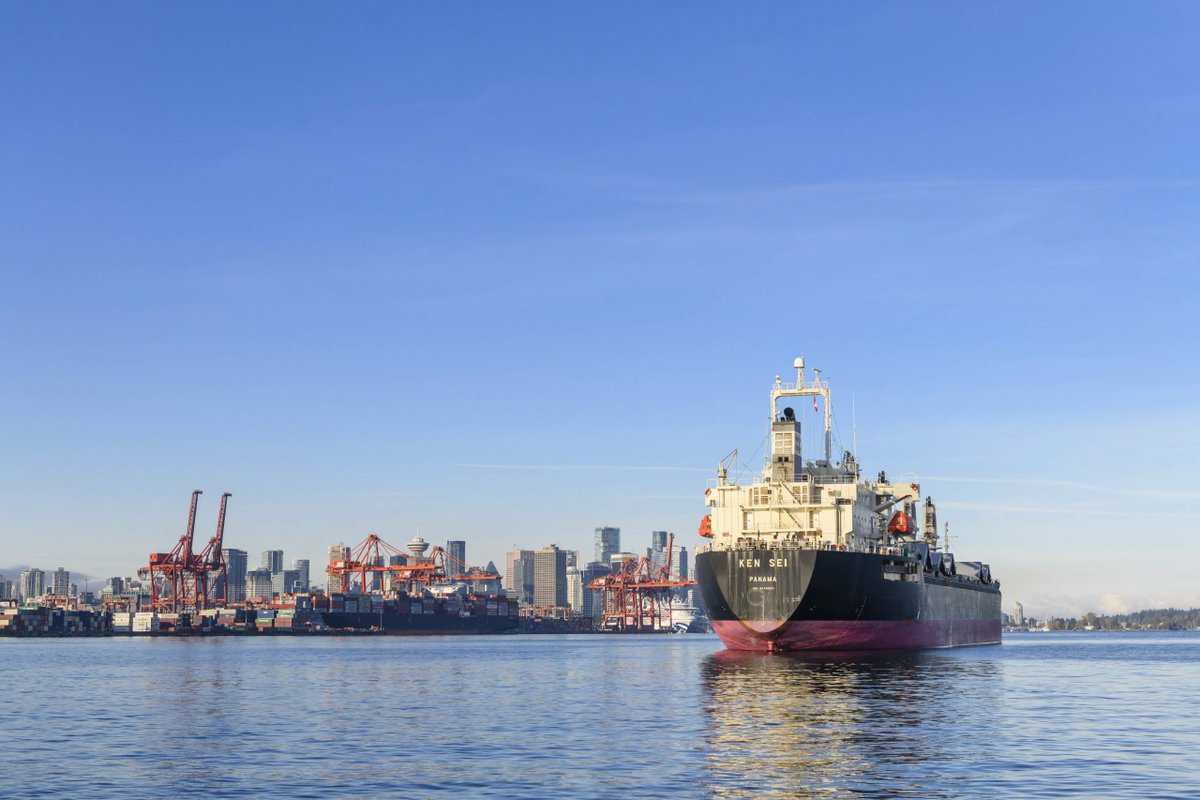Port of Vancouver looking to alternative fuels to become net zero by 2050
The Vancouver Fraser Port Authority has been evaluating various low- and zero-emission fuels and technologies at the Port of Vancouver in a bid to cut all port-related emissions by 2050.
 PHOTO: Cargo ship entering the Port of Vancouver, Canada's main west coast port. Port of Vancouver
PHOTO: Cargo ship entering the Port of Vancouver, Canada's main west coast port. Port of Vancouver
The port authority has been involved in testing 100% biodiesel on commercial ferries and 100% renewable diesel on a terminal locomotive and the Takaya, one of the port’s patrol boats. Notably, the Takaya will undergo a six-month trial on 100% renewable diesel provided by energy major Shell.
Biodiesel and renewable diesel are both made from vegetable oils or animal fats, but differ in their production processes and properties.
Other initiatives to decarbonise the port include a hydrogen-powered crane and battery-electric-powered terminal tractors.
These projects will be supported by the Low-Emission Technology Initiative, which will receive funding worth $1.5 million from both the Vancouver Fraser Port Authority and the Province of British Columbia.
Robin Silvester, Vancouver Fraser Port Authority’s president and chief executive, said that these “innovative new low-emission fuels and technologies that reduce emissions” are the way forward to attain net zero by 2050 - in sync with Canada’s goal.
By Tuhin Roy
Please get in touch with comments or additional info to news@engine.online






